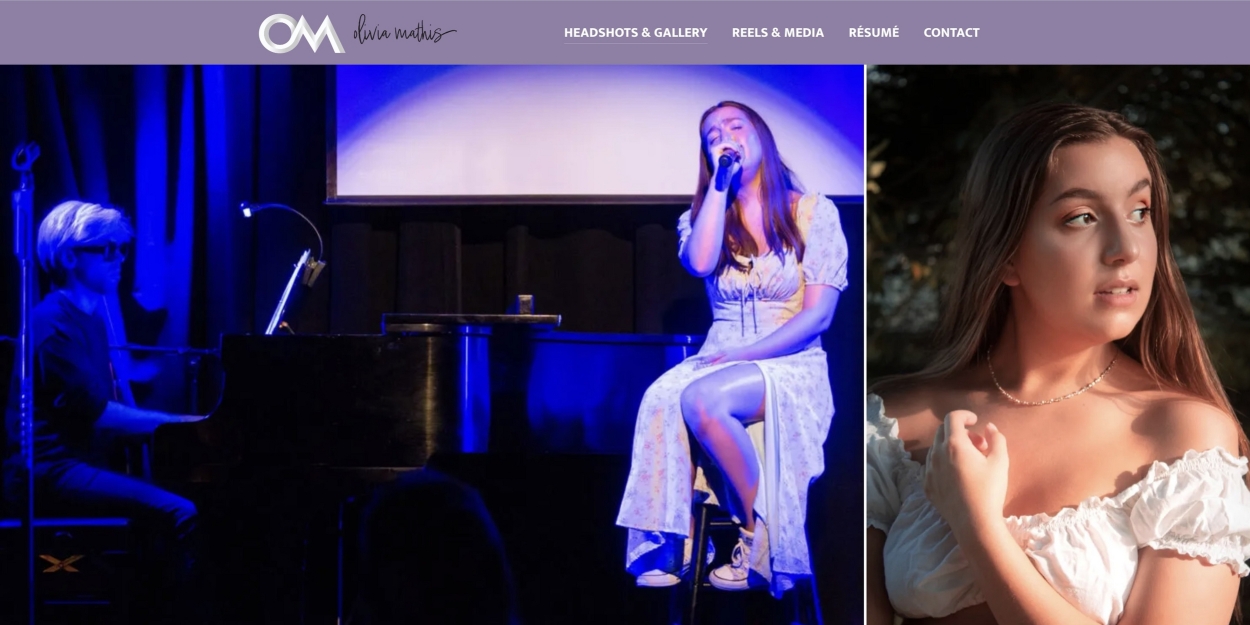The Importance of Branding
Advocating for yourself as an actor is vital, and whether you like it or not, marketing and branding are half the battle.

For the longest time, I was stressed and confused about what branding and marketing myself meant as a performer. I ignored it for the entire first year of performing in New York because I didn’t know how to get started. But I learned it means having a website, resume, and social media presence that reflects who you are and what you love to do. It should be a physical manifestation of your personality as a performer. Advocating for yourself as an actor is vital, and whether you like it or not, marketing and branding are half the battle. This doesn’t just include having a neat, professional headshot and resume, but you also need an online presence that shows your personality and what you do best as a performer.
You don’t need to be a content creator to have effective branding, but you do need performance content accessible to the public while auditioning. Casting agents need to be able to find you online and understand what you do best. When they’re the people determining whether or not you get the job, why not make it as easy as possible for them? Some great ways to accomplish this include making a website, an Instagram or TikTok account, and a YouTube channel. I would recommend hiring somebody to help you. An amazing resource is Problem Solved by Jenna, a business started by brand coach and content creator, Jenna Leigh Miller. If you are feeling lost in how to market yourself, she designs websites, logos, and resumes, and helps actors “utilize social media to further their career”. It is so important to feel proud and confident with your branding, as it’s actively showing off you and the work you do as an actor.
Whether you’re hiring someone or not, it is good to understand what you want out of your branding. For example, when I was starting to think about crafting a website, I looked at peers and mentors who had performer websites to see what I liked and disliked. Take inspiration from those around you! Building a website can be overwhelming, but it can be really fun to craft once you understand the main things you need. First, you need a domain. If you’re building a website on your own, I recommend Wix or Squarespace. They’re user-friendly, and fairly easy to navigate if you don’t know much about graphic design. Second, every performer’s website needs a home page, a biography, a news section, reels and media, a resume page, and a contact page. Additionally, if you want to show anything else off you can! For example, I’m looking to expand my own website to include a blog section where I can showcase these articles. If you teach, you can also have a separate section on your website that has where to book lessons and classes.
In each of these sections, you’ll need materials to add in. Your home page should have your name at the top, and images of yourself that you love. I recommend adding your “about me” section on this page as well. Explain a bit about your background and training. List some mentors and teachers, and talk about what you love to do onstage and off. If you’d like, your news section can be on the home page as well, but it also works well as its own separate page. Describe what you’ve been up to, and link any articles or testimonies that have been written about you or projects you’ve been in recently. The next vital part of any website is reels and media. If you have a ton of headshots, dance pictures, show pictures, or snapshots of you singing in cabarets or concerts, this will come in handy. Have a page dedicated to these photos. Likewise, if you have any videos from cabarets, vocal reels, dance reels, or acting reels, make sure those are on your reels page. Casting directors need to find these if they’re looking on your website, so make sure they’re able to find them quickly and efficiently. On your resume page, make sure you have a copy of your resume that is downloadable, so that casting offices can save it to their devices. Last but not least is your contact page. If you are signed with an agent, make sure their contact information is listed. If not, you can list your contact information and social media accounts.
While I believe it’s important to have a website, it isn’t the only way to get your name out as a performer. Social media can be equally as helpful. TikTok, YouTube, and Instagram Reels are great for sharing clips of yourself performing. A lot of actors get in their heads about social media, but the fact is, you don’t need to be a content creator to use these tools effectively. It can be helpful if you are interested in being a creator, but if that’s not up your alley, don’t try to fit yourself into that box. If you want to use your profile for branding without doing that, you just need to make sure that you have pictures and clips of you performing. You can pin those to the top of your profile for easy access. That’s all you need!
Having a website and actively posting on social media makes it a hundred times easier for casting directors to find you when they want to see more from you, and it helps them remember who you are and what you do best. Marketing is meant to help you alongside your career, and feeling proud of your branding is so helpful when you’re advocating for yourself as a performer.
.png)
|
.png)
|
Videos

